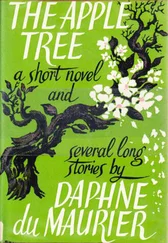There was an article in Life magazine Artie tore out to give to Shirley to help her in her own War Efforts, and he took it to her after cheerleading practice. Shirley sat down on the bottom row of the gym bleachers with Artie and read the part of the article Artie had underlined for her, which said: “Since kiss imprints are liable to smudge en route through the mail, best to let the lipstick dry as thoroughly as possible. Sometimes in order to get a better impression of their lips, girls apply a little cold cream on top and blend it carefully.”
When Shirley finished reading it, she burst into tears.
“What’s wrong?” Artie asked, afraid he had done something awful.
“I’m sorry,” Shirley said, sniffing, then dabbed at her eyes with a dainty white handkerchief.
“No, I’m sorry,” Artie said. “But why?”
“I’m terrible,” Shirley said.
“Why?” was all Artie could say again.
“Because,” said Shirley, biting her lip, “I don’t want to kiss a piece of paper. I want to kiss him !”
Then she broke down sobbing again, and Artie felt like a heel, though he hadn’t meant to do anything wrong. He wanted to make her feel better, but he couldn’t put his arm around her or take hold of her hand or any stuff like that right in public and him just a kid, so he asked if she’d like to go to Damon’s Drugs for a small lemon Coke. A small Coke was only a nickel, which was half of a dime War Stamp, but Artie felt it would be well spent for the War if it would make Shirley feel better again.
Shirley blew her nose and then smiled and said that sounded just fine.
Shirley insisted on buying Cokes for them both, and Artie gave in, figuring it was all right because even though she was a girl she was older than he was, so it was kind of like having a big sister buy you something instead of a girl friend. Afterward Shirley wanted to take a walk, and Artie was glad; it was something he could do to help, walking with her out to Skinner Creek and talking so she wouldn’t be sad and alone.
The sun was warm and reflected in the puddles from the rain the night before and everything smelled earthy and pungent, like it got just before things started to grow and get green again. It was a heady smell, like some kind of perfume except it was made by Nature instead of in factories.
They went right to the rock where Roy always used to go to think things out, which also was right by the place where he and Shirley had done it under the blankets that time and Artie was only a stone’s throw away but they never knew it. Artie got a little nervous, worrying he might give away what he knew, like saying out of a clear blue sky, “I was here the time you and Roy did it under the blankets but I didn’t look and I couldn’t help listening but when you both started making all the noise I took off.” It was scary just having that go through his mind in Shirley’s presence, knowing he might get his wires crossed and blurt it out, and he had to concentrate hard on being sure he didn’t give it away.
“Me and Warren Tutlow have collected seven hundred and forty-two and a half pounds of scrap paper for the War Drive,” Artie said, trying to change the subject in his mind.
“Amazing,” said Shirley.
“Not really, it’s not really much of anything till we get a thousand pounds.”
“A thousand pounds,” she said.
Artie could tell she was a thousand miles away, or however far it was to one of those little dots of an island where Roy might be hurling a Jap over his head at this very minute.
“You really shouldn’t worry about Roy,” Artie told her. “If a guy comes at him with a knife, he knows how to throw him right over his shoulder. I know. He did it to me.”
“I’m terrible,” Shirley said.
“What?”
Shirley stood up, and folded her arms real tight across her stomach.
“I am,” she said. “A terrible person.”
“No, you’re a wonderful person,” Artie said. “If anyone said you were terrible, I’d gouge out their eyes with my thumbs. No one did, did they?”
“No.”
“So how come you think so?”
“I know.”
“I don’t get it,” Artie said.
Shirley bit at her lip.
“I shouldn’t be talking to you like this,” she said.
“It’s okay. I like you to talk to me.”
“I don’t have anyone else to talk to about it. They’d think I was crazy.”
“How come?”
Shirley sat back down on the rock, drawing her knees up to her chin and smoothing the skirt down over her legs. She was wearing stockings with her ballet slippers and the sun made glinting lights on the smooth silk of her legs.
“There are certain things a girl can do in Wartime that it wouldn’t be right to do otherwise,” she said.
“Sure,” Artie said, figuring she meant the stuff she did with Roy underneath the blanket but naturally didn’t want to come right out and say so. Knowing he sort of knew what she meant without her having to spell it out made Artie feel proud and wise.
“In Wartime, a girl should do her duty, if she loves a man, but she’s not supposed to really be crazy about it.”
“She’s not?”
“Not any more than a man who does his duty by killing the enemy should actually enjoy doing it. Then he’d just be a killer, nothing more than an animal.”
“I guess so,” Artie said. “But I don’t think you have to worry about that happening to Roy. I mean, I think he’ll just kill off the Japs he has to, to get the job done, but he won’t want to keep on killing people after we win the War.”
“Of course not. By the same token, a girl should do her duty, and do it well, and be glad she had the right and privilege of doing it, but she shouldn’t really love doing it, or she’d just be an animal herself, like the man who enjoys killing the enemy so much he becomes a killer.”
“But you don’t have to kill anyone. You just have to keep the home fires burning.”
“They’re burning all right.”
“So everything’s fine. You’re doing your duty.”
“I did,” she said. “The trouble is, I want to keep doing it.”
“Your duty?”
“I’m being a phony to call it that. Don’t you see? ‘Duty’ is something you have to do even though you may not want to, and if you really love doing it, it can’t be ‘duty.’”
“What is it, then?”
Shirley squeezed her eyes shut, and hugged her knees to her chin.
“Sin, I suppose.”
“But things that are a sin in peacetime, aren’t a sin in war,” Artie said. “Like killing is a sin if there isn’t a war on, but killing a Nazi or Jap is something you have to do and it’s good if you do. That’s why they give guys medals who kill a lot of enemies. That’s a guy’s duty. But they don’t give girls medals for doing their duty.”
“If they did, I’d get the Congressional Medal of Honor.”
“Well, I bet Roy’ll give you all the medals he wins when he gets back home.”
“I don’t want his medals!” Shirley cried. “I want him !”
“You will,” Artie said. “He loves you. As soon as he comes back; you’ll have him.”
“ If he comes back.”
“I swear he will.”
“And when he comes back. Months? Years?”
“However long it takes to get the job done.”
“That’s easy for you to say.”
“Heck no, it’s not. He’s my brother.”
Shirley jumped up and started walking around the rock, shaking her head.
“Listen to me. I’m sorry. See how selfish I am? I really am terrible.”
“You’re not either,” Artie said.
Shirley stopped, and stared off into the woods.
“What if something wonderful happened to you,” she said, “something you thought would be nice, but turned out to be the most exciting and fabulous thing that ever happened to you, and you got to have it happen for a little more than a whole week, and then you knew you couldn’t have it happen anymore for months or maybe years or maybe never?”
Читать дальше












